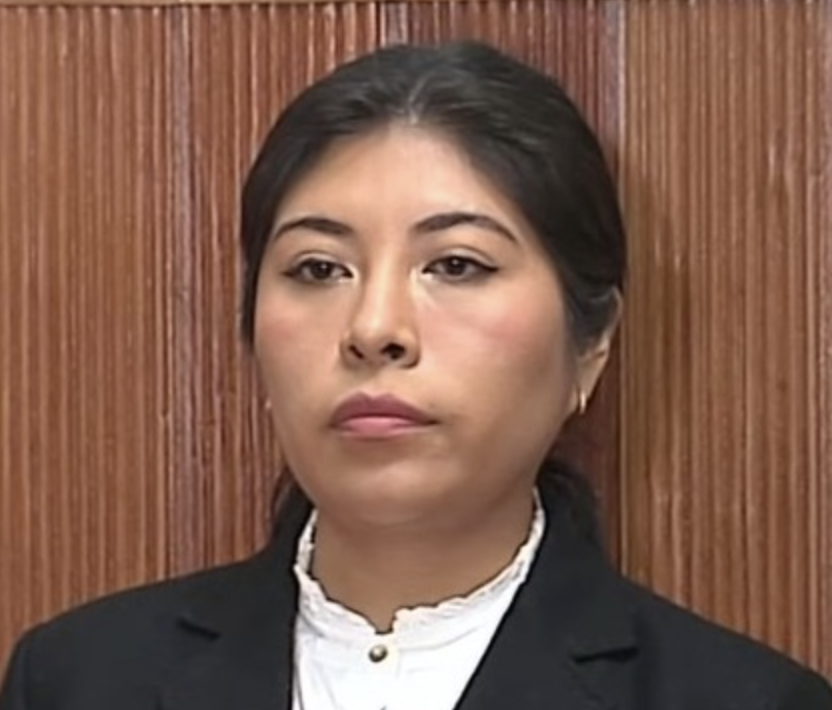Introduction: an arrest that divided a nation
The arrest of Betssy Chávez shook Peru. The former prime minister, once a key ally of Pedro Castillo, found herself surrounded by cameras, accusations, and an outcry for justice.
But beyond the headlines lies a deeper question: is this the triumph of the rule of law or another chapter in the political chess match that defines modern Peru?
From lawyer to prime minister: the rapid rise of Betssy Chávez
From classrooms to congress
Born in Tacna and trained as a labor lawyer, Chávez made her way to Congress in 2021 and quickly climbed Peru’s political hierarchy. Within a year, she went from Minister of Labor to Prime Minister — until one December morning changed everything.
The political storm around her
When President Pedro Castillo announced on live television that he was dissolving Congress, the country froze. Congress retaliated within hours by removing him from office, and Castillo was promptly arrested. In the aftermath, investigators turned their eyes toward his inner circle — including Betssy Chávez.
Why was Betssy Chávez arrested?
At the core of the case are two allegations: rebellion and conspiracy.
Prosecutors claim that Chávez knew about Castillo’s plans to dissolve Congress and failed to stop or report them.
Rebellion and conspiracy explained simply
Rebellion punishes any act that threatens constitutional order. Conspiracy applies when someone helps plan such an act — or knows about it and does nothing. In straightforward terms, if Chávez knew what was coming and stayed silent, she may be legally liable for enabling a coup.
The legal debate: did she truly commit a crime?
Here lies the heart of the controversy.
Many Peruvian legal experts argue that there is no direct evidence linking Chávez to the decision to dissolve Congress. What exists are circumstantial details: meetings, ambiguous statements, and her silence during critical moments.
Others claim that her position demanded action — that as a minister she had a legal duty to prevent or denounce unconstitutional acts.
Prosecutors are now attempting to prove what’s known as “collaboration through omission” — a complex but possible argument when someone in power fails to stop a predictable illegality.
Judicial proceedings: between law and politics
Preventive detention – justice or overreach?
The Peruvian Supreme Court ordered preventive detention, citing flight risk and potential obstruction. While this measure, on paper, protects judicial integrity, in practice it has become a political weapon across Latin America.
Legal scholars remind us that preventive detention should be exceptional, not the norm — yet in Peru it often replaces proper investigation, especially in high‑profile political cases.
The political and social impact
Chávez’s arrest deepened Peru’s already polarized landscape. Critics call it long‑overdue justice; supporters see political persecution under legal disguise.
A mirror for Latin America
What happens in Lima echoes across the region. Many countries face the same dilemma: where does justice end and politics begin? This case stands as a warning about using criminal law as a tool of political survival.
Legal implications: what comes next
If prosecutors can show complicity or prior knowledge, Chávez could face a severe sentence — and perhaps establish a dangerous precedent: that silence in power can become a crime.
A fairer legal view must examine whether she had an actual legal obligation to act and whether her inaction produced tangible effects. Without such proof, punishment could transform legal responsibility into moral judgment.
Beyond Chávez: the structural issue
Public distrust in the justice system
The case highlights deep institutional weaknesses: inefficiency, political interference, and dwindling faith in the judiciary. When trust fades, every arrest looks more like vengeance than justice.
The line between justice and spectacle
The televised hearings, leaks, and emotional rhetoric have turned procedural steps into public theater. Justice competes with entertainment — and that alone dilutes objectivity.
Critical view: justice or vendetta?
While the State has the right to investigate, the excessive use of pre‑trial detention and the hostility of the political climate make total impartiality hard to believe.
What should have been a legal debate was turned into a public trial by media. With Congress, prosecutors, and the executive locked in permanent conflict, Peru’s legal institutions risk appearing as weapons of convenience.
Conclusion: lessons for the region
The Betssy Chávez case offers a sobering lesson: when politics overtakes the law, no one is safe.
The real challenge is not deciding whether she is guilty, but ensuring her right to a transparent, fair, and independent trial.
For the rest of Latin America, it’s a reminder that judicial independence is not built on slogans but on robust institutions and respect for due process.
In a region where justice often arrives late — or manipulated — the arrest of Betssy Chávez could mark a turning point in the eternal struggle between power and legality.
